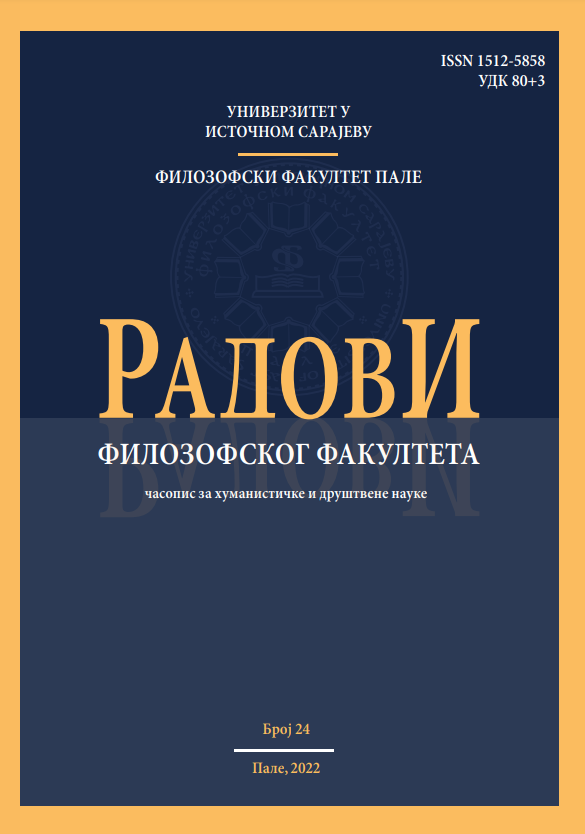ULOGA RODITELJA U NASTANKU POREMEĆAJA SLIKE TIJELA KOD ADOLESCENATA
THE ROLE OF PARENTS IN THE GENESIS OF BODY IMAGE DISORDERS IN ADOLESCENTS
Author(s): Luka D. BorovićSubject(s): Education, Psychology, Developmental Psychology, Psychoanalysis
Published by: Универзитет у Источном Сарајеву, Филозофски факултет Пале
Keywords: body image dissatisfaction; sociocultural theories; psychoanalytic theory of object relationships; family psychotherapy; adolescence;
Summary/Abstract: Body image dissatisfaction and disorders are a phenomena studied by multiple psychological theories and schools of psychotherapy. The relationship quality with parents and the family dynamic are considered to be one of the most important factors not only in the genesis but also in the treatment of these disorders in the young and adolescents. In this paper, the role of the family in the development of body image dissatisfaction is analysed through the lenses of three theoretical approaches: sociocultural theories, psychoanalytic theories of object relationships, and various schools of family psychotherapy. Sociocultural theories conceptualise parents as carriers of societal ideals and standards of beauty, slenderness, muscularity, etc., which can lead to unrealistic standards when judging the value of our looks. These social messages can be portrayed indirectly, through various comments, jokes, and prejudices towards people of certain body types. Further, body dissatisfaction can also be developed through excessive identification with a parent unhappy with his or her own body and who tries to achieve the desired looks. However, these theories fail to connect such social interactions with a deeper dynamic of self and a sense of personal value, and neurotic tendencies and irrational beliefs that stem from these problems. On the other hand, psychoanalytic theories focus on early deficits in mother–child interactions that can produce feelings of being unaccepted, defective, unlovable, and also attempts to compensate these feelings by achieving an “ideal” body and a tyrannical relationship towards the body that is identified with aspects of a “bad self”. These deficits can range from interactions with an unresponsive mother who cares for the child only in the sense of his physical needs, to downright hostile mothers whose behaviour portrays the world as a hostile and unfriendly place in which the child will be rejected for his faults and defects. A special type of defective relationship occurs when mothers are highly narcissistically invested in their child, with fantasies of enormous beauty, success, popularity, etc. These messages can lead to a child developing a “false” sense of a grandiose self and perfect body that hides feelings of personal inadequacy and a constant need to project the image of a beautiful and successful person. Various modalities of family psychotherapy see body image pathology as a manifestation of wider family dysfunctions. When body image disorders occur in adolescents they often represent an unconscious protest towards parental prohibitions, a lack of autonomy, the repressed feelings of insecurity and anxiety in the family. Within family therapy, there is also a necessity of working with parents to correct these communication failures and to affirm the autonomy of the adolescent while maintaining parental interest and authentic engagement in his life. Therapeutic interventions are mainly based on the free expression of repressed emotions, parents accepting their responsibilities and forming a working alliance for the well-being of their children, and accepting a new autonomy and the need to be a separate person which arises in adolescence while maintaining a healthy and balanced diet. The conclusion that can be interceded based on these theories is that body image dissatisfaction and disorders need to be treated holistically. Body image is a part of the wider problem of a relationship towards the self, a conditional sense of personal value, and a fear of losing autonomy as opposed to a fear of losing the love and acceptance of our loved ones.
Journal: Радови Филозофског факултета (часопис за хуманистичке и друштвене науке)
- Issue Year: 2022
- Issue No: 24
- Page Range: 193-214
- Page Count: 22
- Language: Serbian

